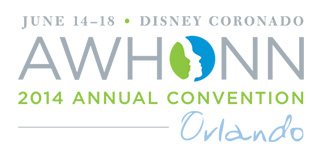The Development and Evaluation of a Lactation Rotation for a Pediatric Residency Program at a Tertiary Care Teaching Hospital
Title: The Development and Evaluation of a Lactation Rotation for a Pediatric Residency Program at a Tertiary Care Teaching Hospital
- Define the pediatrician's role in supporting the breastfeeding dyad.
- Describe the development of a Lactation Rotation for pediatric residents.
- Evaluate the impact of the Lactation Rotation on the resident's knowledge and clinical confidence about breastfeeding.
Design: Pretest-post test design
Setting: Tertiary care teaching center in Illinois
Sample: Convenience sample of 12 first year pediatric residents
Methods: The participating 12 residents were provided materials including; AAP policy statement on Breastfeeding and the Use of Human Milk, Wellstart International Self-Study Modules, Academy of Breastfeeding Medicine Protocols and Thomas Hale’s “Medications and Mothers’ Milk”.
Each resident spent a minimum of 50 hours with an International Board Certified Lactation Consultant (IBCLC). Training included inpatient rounding, “hands-on” management, observation with the neonatal intensive care unit IBCLC, answering helpline calls, and viewing of breastfeeding videos. In addition, each resident created an evidence based lactation presentation for staff.
Residents were evaluated to measure proficiency in providing breastfeeding care. In turn, they evaluated their rotation in terms of strengths, weaknesses and suggestions for improvement.
To measure breastfeeding knowledge and clinical confidence levels, each resident completed the AAP’s Breastfeeding Residency Curriculum Pre-test four times, as follows; the first and last day of the rotation, and at 6 and 12 months post rotation.
Results:
Pre-test and confidence scores were evaluated. Statistically significant differences were found between test 1 and 2 (M=74.67, SD=8.41 vs. M=87.33, SD=7.78, p= .001), test 1 and 3 (M=74.67, SD=8.41 vs. M=89.33, SD=5.48, p < .001), and test 1 and 4 (M=74.67, SD=8.41 vs. M=89.0, SD=7.65, p < .001). No significant differences were found between Tests 2, 3, and 4 (p values >.05) – demonstrating retention of knowledge gained. With regards to clinical confidence, the ability to “adequately address parent’s questions about breastfeeding”, differences between Test 1 and 2, 1 and 3, and 1 and 4 were significant with confidence increasing in Tests 2, 3, and 4 (p values being .003, .020, and .009 respectively) and the ability to “completely manage common breastfeeding problems”, differences between Test 1 and 2, 1 and 3, and 1 and 4 were significant with confidence increasing in Tests 2, 3, and 4 (p values being <.001, .010, and p<.001 respectively).
Conclusion/Implications for nursing practice:
As a result of an innovative, comprehensive educational lactation program, the pediatric residents’ knowledge and clinical confidence related to breastfeeding significantly increased.
Keywords: breastfeeding, physician knowledge, clinical confidence
